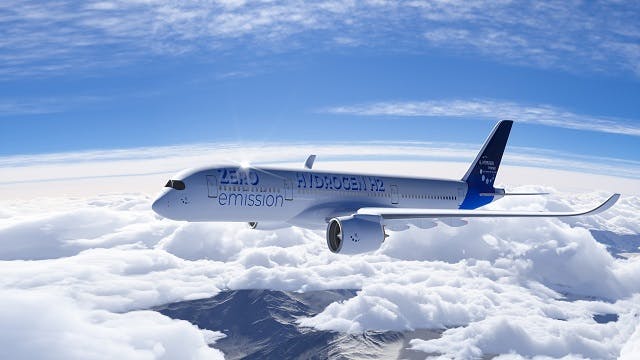The civil aviation sector is working to reduce its climate impact by finding alternatives to conventional kerosene-based aircraft, with hydrogen being a promising option. The European Commission aims for carbon neutrality by 2050, and sustainable aviation fuels are also being investigated. However, hydrogen has economic advantages over alternative fuels. With the help of Simcenter simulation technologies, it’s possible to model and simulate the performance of regional aircraft using various fuels and propulsion systems and evaluate the results. Additionally, by utilizing computational fluid dynamics (CFD) and large eddy simulation (LES), we can develop and implement new combustion methods based on precise design and geometric tuning. This helps overcome challenges related to hydrogen usage.
Webinar topics
This webinar will cover:
- Why there’s increasing interest in hydrogen
- Preliminary modeling and simulation of hydrogen-propelled regional aircraft thanks to Simcenter system simulation technology
- Zero carbon emission perspective for gas turbines and aero engines and why this could pose challenges
- Fundamentals of micromix combustion for hydrogen as a totally new idea to overcome challenges with inherent safety and operational readiness
- LES hydrogen combustion simulation of a micromix burner using CFD simulation technology
- Application examples
발표자 소개

Erik Munktell
Simcenter Solution Manager for Aircraft Engine
Erik은 13년 동안 다양한 R&D 직책에서 가스 터빈을 연구했으며, 2018년에 Siemens Digital Industries Software에 합류했습니다. 현재는 시뮬레이션 및 테스트 부문의 터보 기계 산업 컨설턴트입니다.

Stéphane Mouvand
Aerospace Business Development Manager, Simcenter System Simulation
Stéphane은 2005년 주요 항공우주 분야 고객의 영업 담당자로 Siemens에 합류했습니다. 현재는 Simcenter 시스템 시뮬레이션 솔루션을 위한 항공우주 및 방위 사업 개발을 이끌고 있습니다.

Constantin Striegan
Development Engineer, Software / Combustion Simulation Expert
Constantin studied aerospace engineering at the University of Applied Sciences in Aachen, Germany, and finished with a Master of Science degree in 2015. He specialized in propulsion technology and numerical mathematics in fluid dynamics. He joined B&B-AGEMA in 2015, and in 2018, he became a development engineer and team leader for software development, working on programs for the design and improvement of compressors and turbines calculations and gas and steam turbine cycle analysis.
